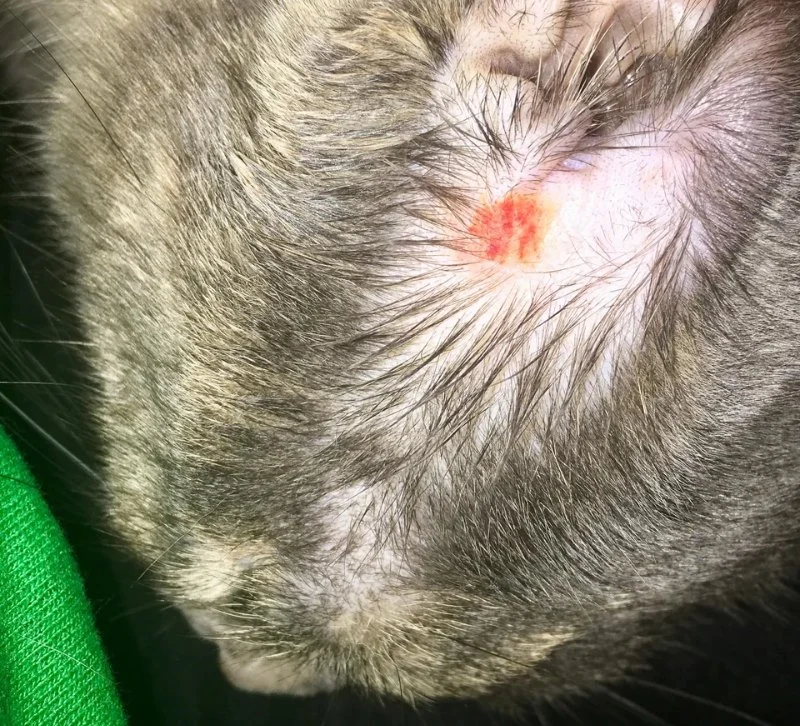
Why Does My Kitten Have a Bald Spot?
- 1. Introduction
- 2. Common Causes of Bald Spots in Kittens
- 3. Underlying Health Issues That Can Cause Hair Loss
- 4. How to Treat and Prevent Bald Spots in Kittens
- 5. When to See a Vet About Your Kitten's Bald Spot
1. Introduction
Seeing a bald spot on your kitten can be alarming, especially if you're not sure what caused it. While some hair loss is normal, excessive or unexplained bald spots can be a sign of underlying health issues. In this article, we'll explore the common causes of bald spots in kittens, how to treat them, and when to seek professional help. Understanding what might be causing your kitten's hair loss can help you keep them happy, healthy, and comfortable.
2. Common Causes of Bald Spots in Kittens
Bald spots in kittens can occur for several reasons, some of which are more common than others. Here are a few of the most frequent causes:
- Over-grooming: Kittens are naturally curious and may lick or nibble on their fur excessively, leading to bald patches. This could be due to stress, boredom, or simply the kitten's grooming habits.
- Fleas and parasites: Fleas, ticks, and other external parasites are common causes of hair loss. These pests can irritate your kitten's skin, causing them to scratch or bite at the affected areas, which can lead to bald spots.
- Ringworm: A fungal infection like ringworm can cause circular bald patches on your kitten's skin. This is contagious, so it's important to get your kitten treated right away.
- Skin infections: Bacterial or fungal infections can cause hair loss and may be accompanied by redness, swelling, or crusty patches on the skin.
These causes can often be identified by the specific appearance of the bald spots and any other accompanying symptoms like itching, swelling, or sores. If you're unsure, it's always best to consult a vet.

Oh Savannah
Huntington BeachOrange CountyCalifornia
Call for appointment, Huntington Beach, CA 92646, USA
3. Underlying Health Issues That Can Cause Hair Loss
While over-grooming and parasites are common culprits, some health conditions can also cause bald spots in kittens. These might require medical treatment or lifestyle changes:
- Allergies: Kittens can develop allergies to food, environmental factors like pollen, or grooming products. Allergies can cause itching, inflammation, and hair loss.
- Hormonal imbalances: Certain hormonal conditions, like hyperthyroidism or adrenal problems, can lead to hair loss. These conditions often require specific treatment and management.
- Nutritional deficiencies: A poor diet lacking in essential nutrients can lead to poor coat health and hair loss. It's crucial to feed your kitten a balanced, high-quality diet to support their fur and skin health.
If your kitten has other symptoms such as weight changes, lethargy, or digestive issues, it’s a good idea to discuss these possibilities with your vet.
4. How to Treat and Prevent Bald Spots in Kittens
Treatment for bald spots in kittens depends on the underlying cause. Here are some general approaches:
- Parasite treatment: If fleas or ticks are the issue, use appropriate flea treatment products recommended by your vet. Regular flea prevention can help avoid future infestations.
- Antifungal or antibiotic medications: For fungal infections like ringworm, or bacterial infections, your vet may prescribe topical or oral medications to clear up the infection.
- Reduce stress: If over-grooming is a concern, providing your kitten with engaging toys and plenty of playtime can help alleviate stress. If anxiety continues, your vet may suggest behavioral interventions.
- Balanced nutrition: Make sure your kitten is getting a nutritious diet with the right balance of vitamins and minerals. A high-quality kitten food will support healthy fur and skin.
Regular grooming can also help you spot any issues early on, allowing you to address them before they become bigger problems.
5. When to See a Vet About Your Kitten's Bald Spot
While minor hair loss can sometimes be a normal part of growing up, it's important to consult a vet if:
- Your kitten’s bald spot is large or spreading.
- The bald spots are accompanied by other symptoms like redness, scabbing, or swelling.
- Your kitten is excessively scratching, licking, or biting the affected area.
- There is no improvement after trying basic treatments, such as flea prevention or stress reduction.
A vet will be able to diagnose the cause of your kitten's hair loss and recommend the best course of action for treatment. Early intervention can help prevent further complications and ensure your kitten stays healthy and comfortable.
If you're concerned about your kitten's health or need assistance finding the right products, check out Omnia Pet for expert advice and high-quality pet care products.



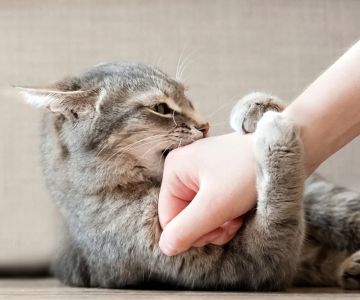

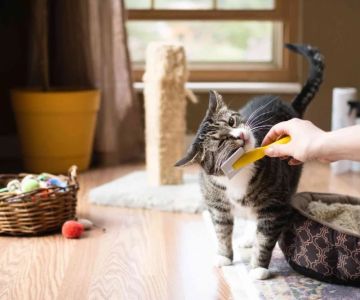

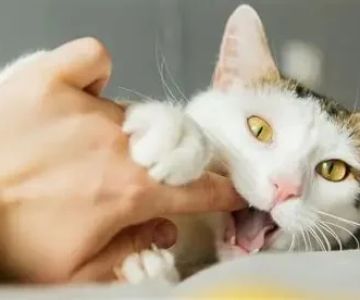
 Hollywood Feed4.0 (184 reviews)
Hollywood Feed4.0 (184 reviews) Brew Biscuits5.0 (2 reviews)
Brew Biscuits5.0 (2 reviews) All Friends Animal Hospital4.0 (446 reviews)
All Friends Animal Hospital4.0 (446 reviews) Kittylandkittens LLC0.0 (0 reviews)
Kittylandkittens LLC0.0 (0 reviews) Village Animal Clinic4.0 (212 reviews)
Village Animal Clinic4.0 (212 reviews) Rift Lake Aquatics4.0 (165 reviews)
Rift Lake Aquatics4.0 (165 reviews) Understanding Pet Insurance: What Does It Actually Cover?
Understanding Pet Insurance: What Does It Actually Cover?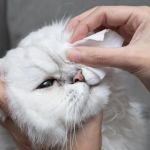 How to Keep Your Kitten's Eyes Clean and Free of Discharge
How to Keep Your Kitten's Eyes Clean and Free of Discharge The Truth About Heartworm Disease: Prevention is Cheaper Than Cure
The Truth About Heartworm Disease: Prevention is Cheaper Than Cure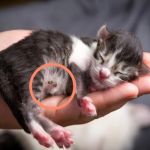 Why Is My Kitten's Belly Button Showing? | Omnia Pet
Why Is My Kitten's Belly Button Showing? | Omnia Pet Why Does My Cat Bite Me Gently? Love Bites Explained
Why Does My Cat Bite Me Gently? Love Bites Explained How to Stop Your Kitten from Getting into Cabinets
How to Stop Your Kitten from Getting into Cabinets